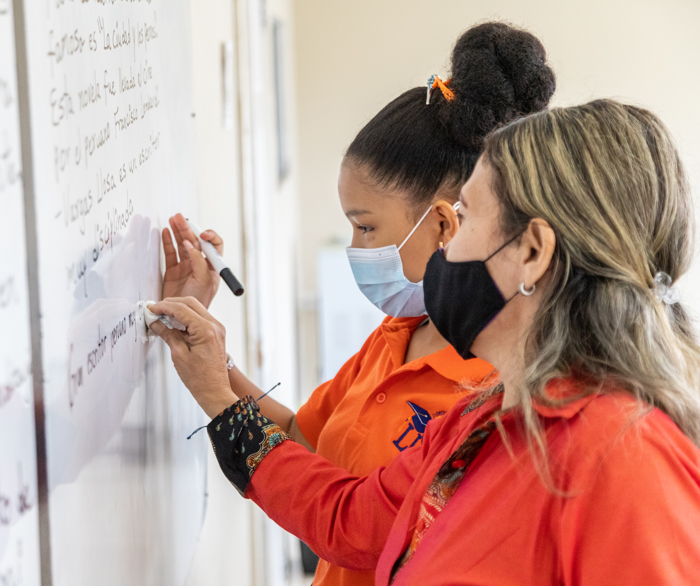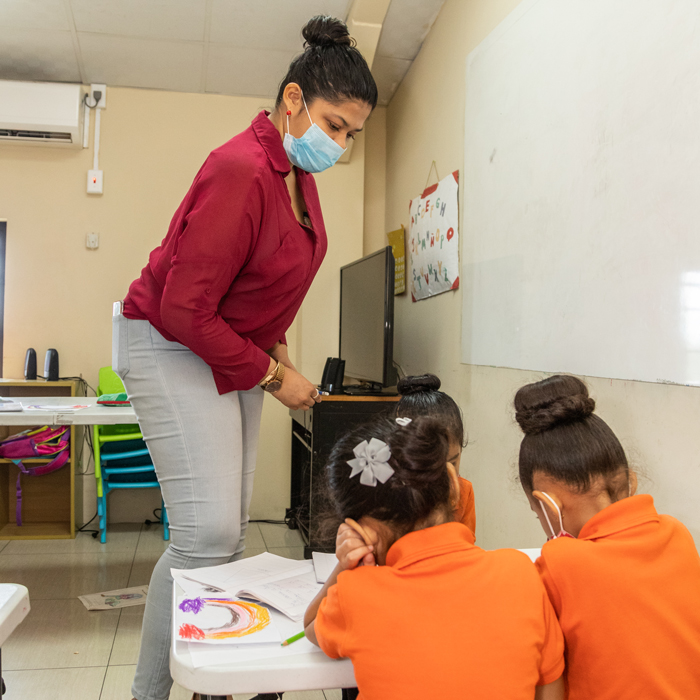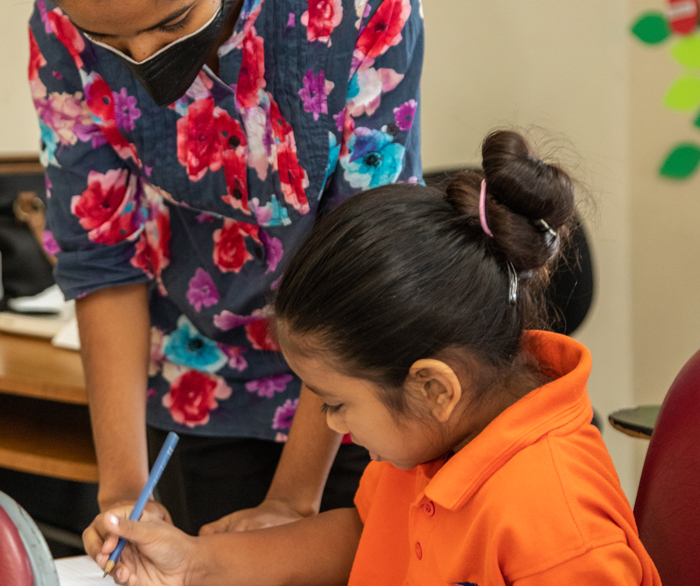
Langdon’s Language Institute (LLI) is a private educational institution in Chaguanas, Trinidad and Tobago, that for more than 24 years has been training people from all over the world. Over the last two years, however, they have started a new programme that focuses on helping Spanish-speaking children learn English and other core educational subjects in a comfortably, familial environment.
Susan Langdon, director and teacher at LLI, said that every year, over 100 adult foreign students come to Trinidad and Tobago to learn English at the institute.
However, in 2019, as she saw the increasing numbers of Venezuelan refugees and migrants coming into the country, she saw an opportunity for Langdon’s to help these Venezuelans – particularly the children – integrate better within their host communities in Trinidad and Tobago by teaching them the language.
“The idea of the school for migrant children arose when (we saw) that the flow of Venezuelans in Trinidad and Tobago began to rise. We want to give these children and adolescents the opportunity to take advantage of their stay here so that they can advance in their educational processes,” she said.
Langdon explained that the situation of Venezuelan refugee and migrant children is different from say, local children. Being refugees and migrants – and therefore, non-nationals – these children and adolescents do not receive student visas from the Immigration Division and so the brakes are put on their education and certification.
Langdon, then, sought to find alternatives to help these children receive a proper, accredited education.


“The school is a project to give Venezuelan refugee children the opportunity for a comprehensive education. We use the Cambridge University Bilingual Curriculum from primary to secondary level, leading to an International Baccalaureate degree,” she said.
This title does not depend on a government certification directly, but it does receive the endorsement of the Ministry of Education.
“We are in the process of getting an endorsement to be an official Cambridge institute. In the meantime, students who are in secondary school are preparing to take their exams at a Cambridge exam center right here,” she said. Successful students would then be awarded an an international high school certificate.
For students whose parents decide to leave Trinidad and Tobago before the curriculum is completed, they can receive an LLI certificate stamped by the Ministry of Education, which can be then apostilled (officially certified and authenticated) by the Ministry of Foreign Affairs.
Langdon’s has more than 150 students between preschool and high school, who learn in a hybrid modality – some students attend in-person classes, while other are virtual.
Classes are Monday through Friday from 8 am to 2:30 pm at the school’s two Chaguanas locations: Mulchan Seuchan Road and Montrose Road.
Terms run similar to the Trinidad and Tobago school cycle, with three terms startin in September until July.
“We receive the children at any time of the year. We take care of them, we prepare them until the end of the school year and we do an evaluation to find out what level they correspond to for the next school year,” Langdon said.


Photos © UNHCR/Jeff K Mayers
LLI has seven teachers certified by the Ministry of Education; they also employ Venezuelan teachers who have qualifications according to their country’s system.
Subjects taught at the school include Mathematics, Science, Spanish, English as a Second Language and the special Cambridge subject called Global Perspective.
“We are working to help Latin American children prepare, educate themselves and have the opportunity to receive an international certification, endorsed by the Trinidadian authorities and that can serve as legal support in other countries,” Langdon said.